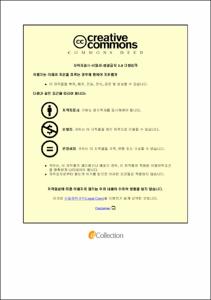수산 부산물로부터 인지질 추출과 유화 안정성 평가
- Abstract
- Consumption of aquatic products has been continuously increased and also their by-products produce environmental problems due to easy decomposition and rapid decay. In addition, a large amount of by-products is generated because there are many non-edible parts in the aquatic products such as fish bone, fins, internal organs, shellfish and shells of crustaceans. In order to improve the utilization of these by-products, nutrition-al value and emulsification property of fish by-products including fish eggs were inves-tigated. General composition of carbohydrate, crude protein, lipid, ash and moisture were measured and the ratio of polar lipids, glycolipids, phospholipids, amino acids, minerals (calcium, phosphorus, selenium), contents of vitamins (A, C, E) and fatty acid and phospholipid contents were measured as minor components. Crude protein contents of the aquatic samples ranged 53% to 77%, showing high nutritional values. The ranges of crude fat content for high six samples 15 to 55% showing high lipid and phospholip-id contents. Based on the results obtained from the analyses of these components, the other objective of this study is to investigate whether the by-products of high phospho-lipids contents can be used as a natural emulsifier. The formation and stability of emul-sion was determined in order to confirm the use as a natural emulsifier depending on the content and composition of phospholipids by using the lipid extracted from the ma-rine by-products. In the case of emulsion stability, the degree of retention at the emul-sion form with time was measured and compared. It is intended to use as the natural emulsifier of the mircoemulsion by using the phospholipids extracted from the marine by-product.
- Issued Date
- 2019
- Awarded Date
- 2019. 2
- Type
- Dissertation
- Publisher
- 부경대학교
- Affiliation
- 부경대학교 대학원
- Department
- 대학원 식품공학과
- Advisor
- 이양봉
- Table Of Contents
- Abstract ⅶ
Ⅰ. 서 론 1
Ⅱ. 재료 및 방법 8
1. 수산 부산물 8
2. 성분 분석 8
가. 수분 8
나. 조단백 10
(1) 구성 아미노산 10
(2) 유리 아미노산 10
다. 조지방 13
(1) 지방산 조성 및 함량 13
(2) 인지질 추출 및 조성 15
라. 회분 17
(1) 미네랄 19
마. 비타민 19
3. Microemulsion제조와 안전성 평가 22
Ⅲ. 결과 및 고찰 24
1. 일반 성분 조성 및 함량 24
2. 아미노산 및 지방산 조성 24
가. 아미노산 24
나. 지방산 33
3. 용매에 따른 인지질 추출 및 조성 35
가. 용매에 따른 인지질 추출 35
나. 인지질 함량 및 조성 37
다. 인지질 지방산 조성 37
4. 미네랄 및 비타민 조성 40
가. 미네랄 조성 40
나. 비타민 조성 40
5. Microemulsion 형태 및 안정성 평가 43
가. 광학현미경을 통한 형태 관찰 43
나.Microemulsion 안정성 평가 43
Ⅳ. 결론 및 요약 55
Ⅴ. 참 고 문 헌 57
감사의 글 61
- Degree
- Master
- Files in This Item:
-
-
Download
 수산 부산물로부터 인지질 추출과 유화 안정성 평가.pdf
기타 데이터 / 2.25 MB / Adobe PDF
수산 부산물로부터 인지질 추출과 유화 안정성 평가.pdf
기타 데이터 / 2.25 MB / Adobe PDF
-
Items in Repository are protected by copyright, with all rights reserved, unless otherwise indicated.